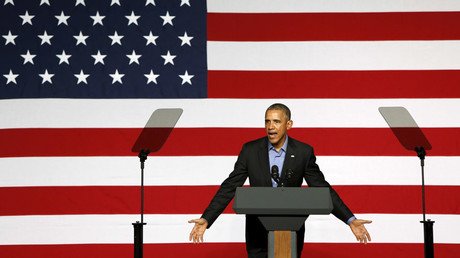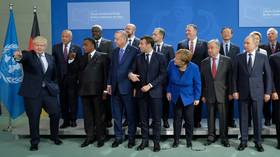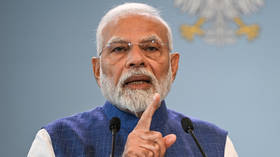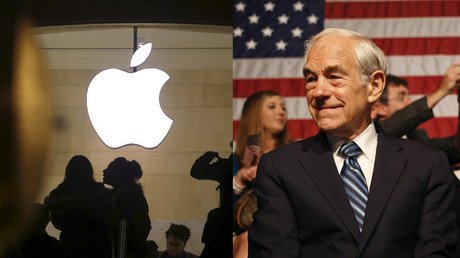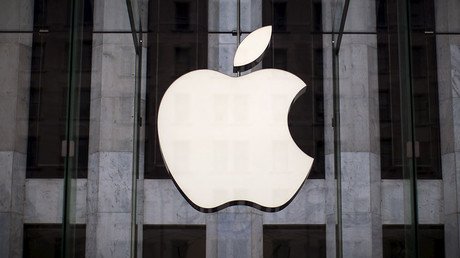DoJ going after WhatsApp encryption - report
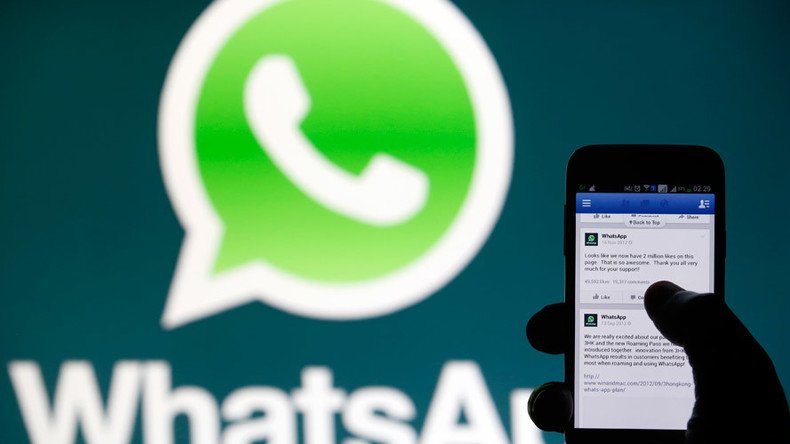
Messaging service WhatsApp is in the Department of Justice's crosshairs because of the application's end-to-end encryption, which has helped thwart a court-approved wiretap. US tech companies are boosting their encryption amid heated privacy debates.
Justice Department officials are in discussion over how to continue a criminal investigation, believed to be unrelated to terrorism, that has been stonewalled due to WhatsApp's encryption, according to the New York Times. A federal judge has approved a wiretap order in the active investigation, the Times reported, citing anonymous sources.
Meanwhile, WhatsApp, Google, and Facebook are working to expand encryption to new areas of customer communications, according to a separate report. WhatsApp is looking to add encryption to its voice calls and group messages, while Facebook, which also owns the messaging service, is planning to shore up protections in its Messenger chat. Snapchat is working on its own increased security features, while Google is looking to boost its End to End project.
End-to-end encryption used by WhatsApp maintains access to user data between the sender and recipient. Federal law enforcement in the US has long sought to weaken encryption, or at least to have access to a workaround to it. This is the case in the FBI's fight with Apple over a request for the tech company to create a special operating system with intentionally weakened security mechanisms in order to access contents of an iPhone used by Syed Farook, one of two assailants in the San Bernardino mass shooting in December.
A US magistrate judge ordered Apple to give "reasonable technical assistance" to the FBI in its pursuit of Farook's communications. Apple has refused to comply, saying the request would set a "dangerous" precedent for digital privacy. The two sides are set to argue their case in front of a federal court on March 22.
The United Nations' high commissioner for human rights has called for caution in the matter, as a successful case against Apple “is potentially a gift to authoritarian regimes, as well as to criminal hackers."
Florida sheriff threatens to ‘lock the Apple CEO up’ over dispute with FBI https://t.co/vtlDButZywpic.twitter.com/d5clIkuIxw
— RT (@RT_com) March 13, 2016
Supporters of encryption say the government's dispute with WhatsApp may be inevitable given that US wiretapping laws were last updated in the pre-digital age.
“The FBI and the Justice Department are just choosing the exact circumstance to pick the fight that looks the best for them,” Peter Eckersley, chief computer scientist at the Electronic Frontier Foundation, told the NY Times. “They’re waiting for the case that makes the demand look reasonable.”
In the FBI's battle to backdoor our encryption, WhatsApp may be the next target after Apple's iOS. https://t.co/5G6w8zsfVz
— EFF (@EFF) March 14, 2016
Law enforcement investigators told the NY Times that the WhatsApp case could be more important for the future of wiretapping than the Apple-FBI case, especially as WhatsApp's increasingly urgent encryption effort for its one billion customers is nearly complete.
Can you blame the tech firms for deploying strong crypto when DOJ is still arguing that the gov can lawfully search devices w/o a warrant?
— Christopher Soghoian (@csoghoian) March 14, 2016
Google, Facebook, Snapchat, Amazon, Microsoft and Twitter have all filed legal briefs in support of Apple's position in its case with the FBI. Other tech companies, including LinkedIn and Reddit, offered a separate court filing in support of Apple, saying that an undermining of iPhone security "threatens the core principles of privacy, security, and transparency that underlie the fabric of the Internet."
